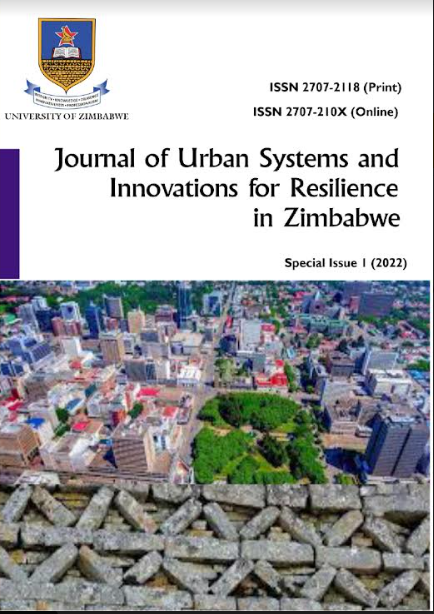Urban Land Management in Zimbabwe: Stressed Points, their Urban Development Implications, and Ideas for New‘ Models
Keywords:
Land governance, land commodification, traditional systems, land transfers, spatial governance, adaptable land uses, land tenure securityAbstract
Accessing and securing rights to urban land in Zimbabwe is a growing area of interest. This is both in terms of practical development and policy research. The interests cover processes of making rural land urban through to developing infrastructure and superstructure. Innovations instituted to address shortcomings and to install good practices have not always led to equitable access and secure rights. Increasingly, the urban poor feel left out. Some have experienced evictions. Inadequate administration of key processes has stressed state institutions and confused land-seekers. Lack of resources and authority contestations due to the emergence of new actors are the key stressors. Based on mixed method analysis, the article notes that urban land delivery, development, and management functions have become weak. These are ripe for transformation. Urban land management focused on elite, overly commodified and single land use zones developed from ‘Greenfields’ is contradicted. Temporally flexible, physically adaptable, and potentially more just spatial governance anchored on evolving combinations of de jure, de facto, and perceived tenure security are emerging. Planners and allied professionals are yet to embrace the emerging transformations as part of consolidating altered urban land management practices into policy.




